Filter by

Towards a Climate-Neutral Europe Curbing the Trend
This book explains the EU’s climate policies in an accessible way, to demonstrate the step-by-step approach that has been used to develop these policies, and the ways in which they have been tested and further improved in the light of experience. The latest changes to the legislation are fully explained throughout. The chapters throughout this volume show that no single policy instrument can …
- Edition
- -
- ISBN/ISSN
- 9781000750713, 100075071X
- Collation
- -
- Series Title
- -
- Call Number
- -
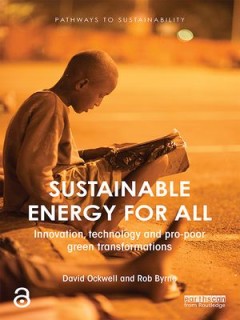
Sustainable Energy for All Innovation, technology and pro-poor green transfo…
Despite decades of effort and billions of dollars spent, two thirds of people in sub-Saharan Africa still lack access to electricity, a vital pre-cursor to economic development and poverty reduction. Ambitious international policy commitments seek to address this, but scholarship has failed to keep pace with policy ambitions, lacking both the empirical basis and the theoretical perspective to i…
- Edition
- -
- ISBN/ISSN
- 9781317220510, 131722051X
- Collation
- -
- Series Title
- -
- Call Number
- -
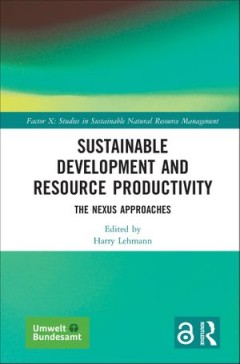
Sustainable Development and Resource Productivity The Nexus Approaches
The fourth Factor X publication from the German Environment Agency (Umweltbundesamt, UBA), Sustainable Development and Resource Productivity: The Nexus Approaches explores the interdependencies of sustainable development paths and associated resource requirements, describing and analysing the necessities for a more resource efficient world.The use of and competition for increasingly scarce reso…
- Edition
- -
- ISBN/ISSN
- 1000213749, 9781000213744
- Collation
- -
- Series Title
- -
- Call Number
- -
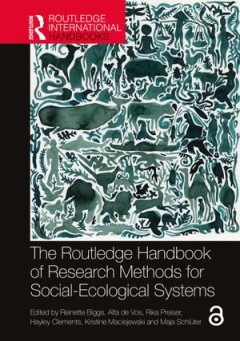
The Routledge Handbook of Research Methods for Social-Ecological Systems
he Routledge Handbook of Research Methods for Social-Ecological Systems provides a synthetic guide to the range of methods that can be employed in social-ecological systems (SES) research. The book is primarily targeted at graduate students, lecturers and researchers working on SES, and has been written in a style that is accessible to readers entering the field from a variety of different d…
- Edition
- -
- ISBN/ISSN
- 1000401510, 9781000401516
- Collation
- -
- Series Title
- -
- Call Number
- -
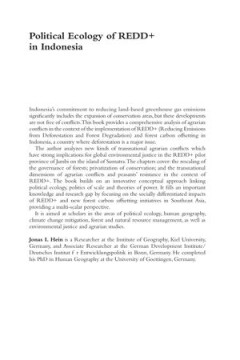
Leak Detection: Technology and Implementation
Ageing infrastructure and declining water resources are major concerns with a growing global population. Controlling water loss has therefore become a priority for water utilities around the world. In order to improve efficiencies, water utilities need to apply good practices in leak detection. Leak Detection: Technology and Implementation assists water utilities with the development and implem…
- Edition
- -
- ISBN/ISSN
- 9781780404714
- Collation
- -
- Series Title
- -
- Call Number
- -
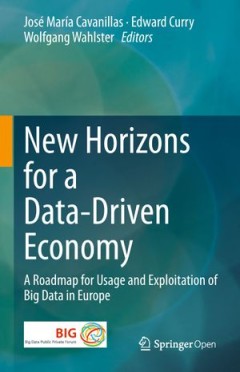
Kfw Water Symposium 2009 Financing Sanitation: “Improving Hygiene Awareness…
The central objective of the International Year of Sanitation was to put the global community on track to achieve the Millennium Development Goals MDG sanitation target.However, one year later, it is still difficult to keep sanitation high on the agenda, while practical action is required to encourage demand driven and sustainable solutions. With the support of the German Ministry for Developme…
- Edition
- -
- ISBN/ISSN
- 9781780401515
- Collation
- -
- Series Title
- -
- Call Number
- -
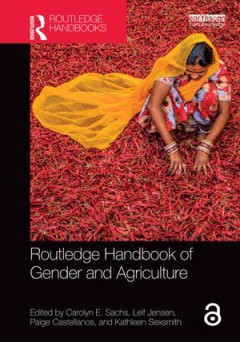
Routledge Handbook of Gender and Agriculture
The Routledge Handbook of Gender and Agriculture covers major theoretical issues as well as critical empirical shifts in gender and agriculture.Gender relations in agriculture are shifting in most regions of the world with changes in the structure of agriculture, the organization of production, international restructuring of value chains, climate change, the global pandemic, and national and mu…
- Edition
- -
- ISBN/ISSN
- 0429578466, 9780429578465
- Collation
- -
- Series Title
- -
- Call Number
- -
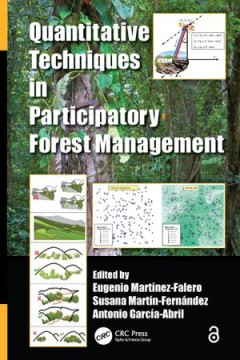
Quantitative Techniques in Participatory Forest Management
Forest management has evolved from a mercantilist view to a multi-functional one that integrates economic, social, and ecological aspects. However, the issue of sustainability is not yet resolved. Quantitative Techniques in Participatory Forest Management brings together global research in three areas of application: inventory of the forest variables that determine the main environmental indice…
- Edition
- -
- ISBN/ISSN
- 9781466569256, 1466569255
- Collation
- -
- Series Title
- -
- Call Number
- -
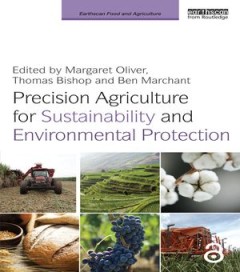
Precision Agriculture for Sustainability and Environmental Protection
Precision agriculture (PA) involves the application of technologies and agronomic principles to manage spatial and temporal variation associated with all aspects of agricultural production in order to improve crop performance and environmental quality. The focus of this book is to introduce a non-specialist audience to the the role of PA in food security, environmental protection, and sustainab…
- Edition
- -
- ISBN/ISSN
- 9781136468254, 1136468250
- Collation
- -
- Series Title
- -
- Call Number
- -
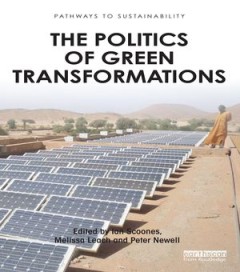
The Politics of Green Transformations
Multiple ‘green transformations’ are required if humanity is to live sustainably on planet Earth. Recalling past transformations, this book examines what makes the current challenge different, and especially urgent. It examines how green transformations must take place in the context of the particular moments of capitalist development, and in relation to particular alliances. The role of th…
- Edition
- -
- ISBN/ISSN
- -
- Collation
- -
- Series Title
- -
- Call Number
- -
 Computer Science, Information & General Works
Computer Science, Information & General Works  Philosophy & Psychology
Philosophy & Psychology  Religion
Religion  Social Sciences
Social Sciences  Language
Language  Pure Science
Pure Science  Applied Sciences
Applied Sciences  Art & Recreation
Art & Recreation  Literature
Literature  History & Geography
History & Geography